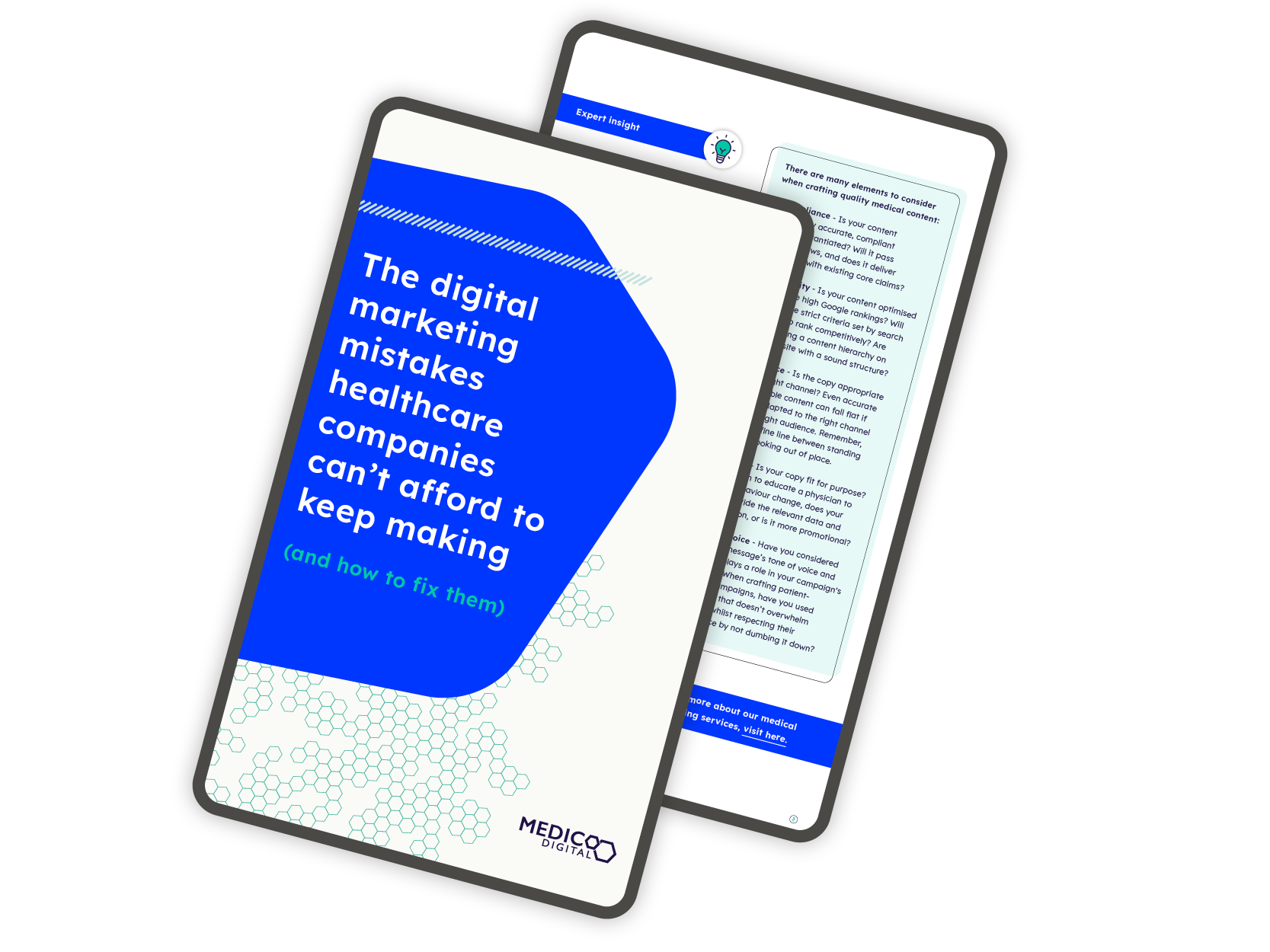As healthcare marketing experts, we like to keep an eye on the latest industry news, opinions, regulatory changes and insights.
Each month, we’ll be bringing you a round-up of the top updates and changes you need to be aware of, as well as our unique take on healthcare news. Read on for February’s digital healthcare updates.
Boots to launch private mental health service
High-street pharmacy chain Boots will be launching its first paid-for mental health treatment service.
The aim is to help with the rising number of people waiting for NHS treatment and mental health support — increasing patient access to mental health services and alleviating pressure on the NHS. The online mental health service will provide patients with access to talking therapies and medicines where appropriate, through Boots’ ‘Online Doctor’ service.
Marc Donovan, the chief pharmacist for Boots, told The Pharmaceutical Journal that the mental health service will provide support for non-complex issues, likely in the form of a counselling support app and management of people’s mental wellbeing — and in some cases, prescribing interventions.
It hasn’t yet been established how much the private mental health service will cost.
Medico take: The push into telemedicine by high street brands like Boots continues. While the economies of scale enjoyed by national chains should allow them to enter the market aggressively, there should be a significant benefit from any marketing push done by Boots to help the public get used to paying for healthcare, utilising telemedicine and helping to further break down the stigma around mental health.
PocDoc launches ‘world-first’ smartphone cardiovascular test
PocDoc — a digital health platform and personal diagnostics provider — has launched what it says is a world-first smartphone-based test for cardiovascular disease, reports Med-Tech.
The five-step ‘DIY’ test will cover the full marker lipid panel established as the gold standard for cardiovascular assessment and will deliver results in six minutes — compared to the days or weeks that a patient would typically wait for lab results.
PocDoc is on track to launch these tests in the spring, when they will initially be available to healthcare distributors and healthcare providers, before a wider public rollout later in the year. The test rollout will enable people to test themselves at home using their smartphone, the PocDoc app and a finger-prick PocDoc lateral flow test.
PocDoc founders Kiran and Steve Roest believe that the testing technology could save the NHS millions of pounds per year, as well as improve health outcomes for cardiovascular disease, which are the leading cause of death globally.
Medico take: Another potential milestone in the consumer healthcare space. We’re predicting that preventative medicine will be the healthcare buzzword for the decade.
Consumer-led health marketing is priority for execs
HealthLeaders shares findings from a recent report on healthcare trends that will be crucial for healthcare marketers to focus on this year.
Speaking with six healthcare marketing executives, HealthLeaders found that individualised care and messaging is a high priority, alongside creating community impact and increasing digital engagement through establishing a relationship with consumers.
Medico take: This isn’t news to anyone involved in healthcare marketing, but it’s nice to see the widely accepted approach to patient-centric marketing get more backing. As we’ve discussed before, great digital patient experiences will matter more than ever in 2022, and these findings reiterate that point. To succeed, healthcare providers, hospitals and clinicians must have a patient-centric focus and find ways to create strong relationships with consumers.
GMC asked to clarify policy on GP use of social media
The GMC has been asked by Deepika Raino in an article on Pulse to clarify its policy on GP use of social media after a recent case raised important questions about freedom of expression by medical professionals.
Over the last two years, in particular, misinformation and divisive stances around science-based public guidance have increased — and some medical professionals have taken to social media to voice their opinions and views.
The argument is whether controversial social media posts constitute professional misconduct and a risk to the public or to public confidence in the medical profession — and therefore should be removed — or whether policing and removal of such posts breaches an individual’s rights to freedom of expression.
It is suggested that moving forward, GMC guidelines should be set out clearly so that they can be understood by members of the medical profession.
Medico take: There’s a lot of clarification to be done by bodies such as GMC and ASA/CAP on advertising policies and use of social media, so we’ll add this one to the “wait and see” pot.
Google changes course on cookies plan following advertising industry backlash
Google has changed direction again on how it will block third-party cookies on Chrome, reports MM+M.
Back in January, a new system, Topics, was announced, with the aim to cluster consumers into broad interest categories based on their last three weeks of web history, after which this historical data is deleted.
Whatever direction that Google takes its cookies policy in next will likely create challenges for healthcare marketers and brands. A possible solution, suggested by the article, is to harness the power of offline, real-world health data combined with Machine Learning and AI to engage and educate patients on conditions and treatments.
Medico take: The marketing arms-race continues. There will always be solutions for finding the right audiences, the hope is that moving away from the current set up will force marketeers to be less lazy, encouraging thinking outside the box.
Facebook ad trends
Healthcare marketers should be aware of wider marketing trends in 2022 too, including these five Facebook ad trends.
The continuing rise of video, mobile advertising, 24-hour stories (across multiple platforms), the rising cost of Facebook ads, and personalised ads are all predicted to grow even further this year.
Staying on top of Facebook ad trends will help healthcare marketers and providers to leverage this valuable resource, with speed and efficiency being key in paid advertising in 2022.
Medico take: Increasing cost and competition for paid media only serves to underline the importance of your owned/earned media strategies.
Missed last month’s healthcare marketing news? Read our January round-up here.




 Download for FREE
Download for FREE 